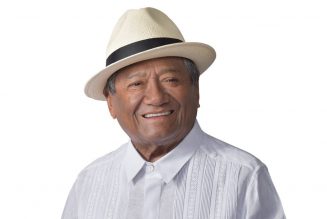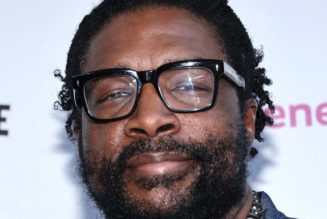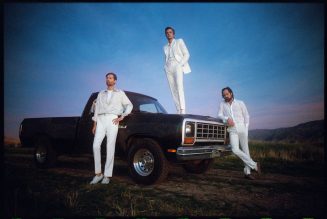
On her newly released The Bridge EP, Maren Morris sought to liberate herself from the toxic aspects of country music. In a follow-up interview with the Los Angeles Times, she further elaborated on her decision with the genre, explaining that, “I thought I’d like to burn it to the ground and start over. But it’s burning itself down without my help.”
The Nashville-based singer-songwriter, who doesn’t consider herself a “political artist,” has publicly bumped against country music controversies such as transphobic remarks made by Jason Aldean’s wife (along with Tucker Carlson’s on-air defense where he called Morris a “lunatic”) as well as Aldean’s recent inflammatory “Try That in a Small Town” music video, which synced racist dog-whistle lyrics to a backdrop of a historic lynching site. Her latest music video for “The Tree” directly parodies contents from the song and video.
Although she offered her “congratulations on crossing over onto the big all-genre chart” to Aldean, Morris viewed singles like “Try That in a Small Town” as “a last bastion. People are streaming these songs out of spite. It’s not out of true joy or love of the music. It’s to own the libs. And that’s so not what music is intended for. Music is supposed to be the voice of the oppressed — the actual oppressed. And now it’s being used as this really toxic weapon in culture wars.”
Related Video
The shift in country music to what she calls “butt rock” started “after the Trump years” when “people’s biases were on full display. It just revealed who people really were and that they were proud to be misogynistic and racist and homophobic and transphobic. All these things were being celebrated, and it was weirdly dovetailing with this hyper-masculine branch of country music.”
After nearly two decades working within the country music industry, Morris affirmed that she doesn’t want to have an “adversarial relationship” with the community, but felt an obligation to speak up because “if you truly love this type of music and you start to see problems arise, it needs to be criticized. Anything this popular should be scrutinized if we want to see progress.”
“But I’ve kind of said everything I can say,” she added. “I always thought I’d have to do middle fingers in the air jumping out of an airplane, but I’m trying to mature here and realize I can just walk away from the parts of this that no longer make me happy.”
As for where she plans to go from here, Morris said she’s reteaching herself to “purposely focus on just making good music and not so much on how we’ll market it.” By bringing in producers Greg Kurstin and Jack Antonoff for The Bridge EP, she intentionally worked with new collaborators to help with “getting perspective on feeling like the hall monitor of country music. The people I’m working with now have no idea what’s going on or the names I’m talking about.”
“These songs are obviously the result of that — the aftermath of walking away from something that was really important to you and the betrayal that you felt very righteously,” she shared. “But also knowing there’s a thread of hope as you get to the other side.
She also noted her full-length follow-up to 2022’s Humble Quest, is still in the writing stages but pushes past country to feature everything from “quirky jam-band moments to, like, prog rock. It’s so fun, and I feel like my old self back in this space of writing songs I love with people I love.” Revisit our 2022 interview surrounding her last album here.









